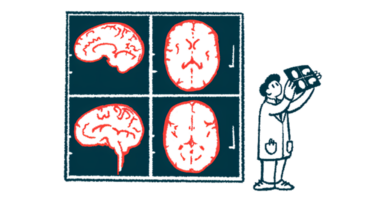Impaired Heart Rate Function Linked to Dementia in 5-Year Study

Impairment due to Parkinson’s disease of the involuntary nervous system, which controls heart rate, among other bodily functions, was associated with worse outcomes after five years — particularly relative to dementia, daily motor activities, and quality of life, a study suggested.
In fact, worse cardiovascular assessment scores were linked to a sevenfold higher risk of developing dementia, according to researchers. Impaired heart rate also was associated with a five times higher risk of falls, as well as significantly worse impairment in activities of daily living and health-related quality of life.
Moreover, people with Parkinson’s who experienced low blood pressure when standing up after sitting or lying down — called neurogenic orthostatic hypotension — also were found to be more likely to develop dementia.
Additional research is needed to determine whether dementia can be slowed or prevented by treating involuntary cardiovascular malfunction, the scientists said.
The five-year study, “Differential impact of individual autonomic domains on clinical outcomes in Parkinson’s disease,” was published in the Journal of Neurology.
Up to 70% of people with Parkinson’s disease experience impairment of the autonomic nervous system — part of the nervous system that regulates involuntary bodily processes, including heart rate, blood pressure, body temperature, respiration, digestion, and sexual function.
Although autonomic failure overall is a well-known indicator for more aggressive disease progression, the impact of problems with individual autonomic systems on clinical outcomes remains unclear.
The goal of this five-year observational study by researchers based at the University of Turin, in Italy, was to determine the impact of each autonomic domain, alone or in combination, on the development of Parkinson’s disability.
The team recruited participants from the university’s movement disorders center, who were enrolled between April 2015 and March 2016. Five-year follow-up data were available for 50 adults with Parkinson’s, ages 38–80, of whom 30 (60%) were male.
After five years, about two-thirds (66.9%) showed impairment in overall activities of daily living, called ADL for short, as measured by MDS-UPDRS Parts I and II. These participants also had a significant — 81.4% — worsening in health-related quality of life (HRQoL), as assessed by the PDQ-8.
Additionally, their Montreal cognitive assessment (MoCA) scores declined (worsened) by 12.3%, and the proportion of those with dementia rose from 8.0% to 23.9% — an increase of nearly 200% in the number of participants now experiencing dementia.
Most participants (86%) reported a significant progression of their autonomic symptoms, with higher total scores on the Scale for Outcomes in Parkinson’s Disease-Autonomic (SCOPA-AUT). The scores represented a 62.6% overall worsening of these symptoms.
Scores for individual SCOPA-AUT domains also worsened after five years. For the digestive system, scores declined by 70.3%, and for the urogenital domains — involving urologic, genital, and sexual function — by 55.4%.
A decline of 66.7% was recorded for scores relative to the cardiovascular system, while those for body temperature regulation worsened by 54.4%. Scores for eye pupil motion (pupillomotor) declined by 125%.
Total SCOPA-AUT scores were not related to any of the disability milestones assessed, including dementia, falls, postural instability, or swallowing difficulties. There was a trend toward significance only for speech impairment.
Importantly, the researchers noted, a worse cardiovascular score was independently associated with a nine times higher risk of developing dementia when compared directly. After statistically adjusting for the different autonomic domains, the risk was 7.6 times higher.
Cardiovascular autonomic symptoms include heart palpitations or rapid heart rate (tachycardia), accompanied by lightheadedness.
Participants with worse cardiovascular scores also were 5.7 times more likely to fall, as assessed without statistical adjustments. None of the specific autonomic domains were related to postural instability, swallowing difficulties, or speech impairment.
Among the different autonomic systems, only the cardiovascular domain was associated with a progression of functional disability. Those with cardiovascular autonomic symptoms showed a greater worsening of the motor experience of daily living, a global experience of daily living (MDS-UPDRS Parts I and II), and HRQoL.
At the beginning of the study (baseline), 13 of the 50 patients (28.8%) had clinically defined neurogenic orthostatic hypotension (nOH) — low blood pressure when standing up after sitting or lying down, which can cause dizziness, lightheadedness, and fainting.
After five years, there was a 5.2 times higher risk of developing dementia in those with nOH at baseline, after correcting for age, motor impairment, and disease duration. In patients with supine hypertension, or high blood pressure when laying down, this risk was 8.3 times higher.
Similar results were found when assessing patients with hemodynamically relevant nOH, defined as low mean arterial blood pressure while upright. After removing patients with dementia at baseline, there was an 8.8 times higher risk of developing dementia among these individuals.
Regardless of nOH types, no association was found with postural instability, swallowing difficulties, or speech impairment.
Patients with this type of low blood pressure showed a deterioration in the motor experience of daily living and HRQoL. Along those with hemodynamically relevant nOH, there remained a significant association with a worse progression of the motor experience of daily living, the global experience of daily living, and HRQoL.
“We found that nOH was the major driver of disability progression and functional impairment in [Parkinson’s disease],” the researchers noted.
Overall, the study found that impairments in heart rate function “was associated with a sevenfold higher risk of developing dementia … and a fivefold higher risk of falls, … as well as significantly higher impairment in ADLs … and HRQoL,” the researchers wrote.
“Our results showed that among autonomic domains, cardiovascular [autonomic impairment] was associated with a higher risk of developing disability milestones and worse progression of functional impairment and HRQoL over the course of 5 years,” the scientists wrote. “Our data suggest a specific role for cardiovascular autonomic dysregulation in the pathogenic [disease-related] mechanisms of [Parkinson’s disease] progression.”








